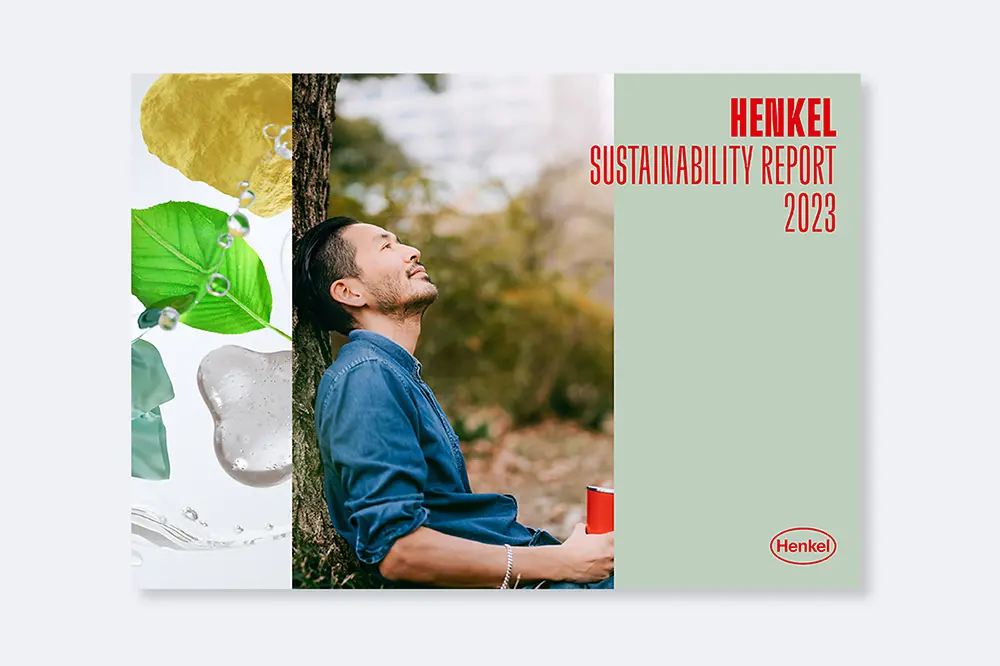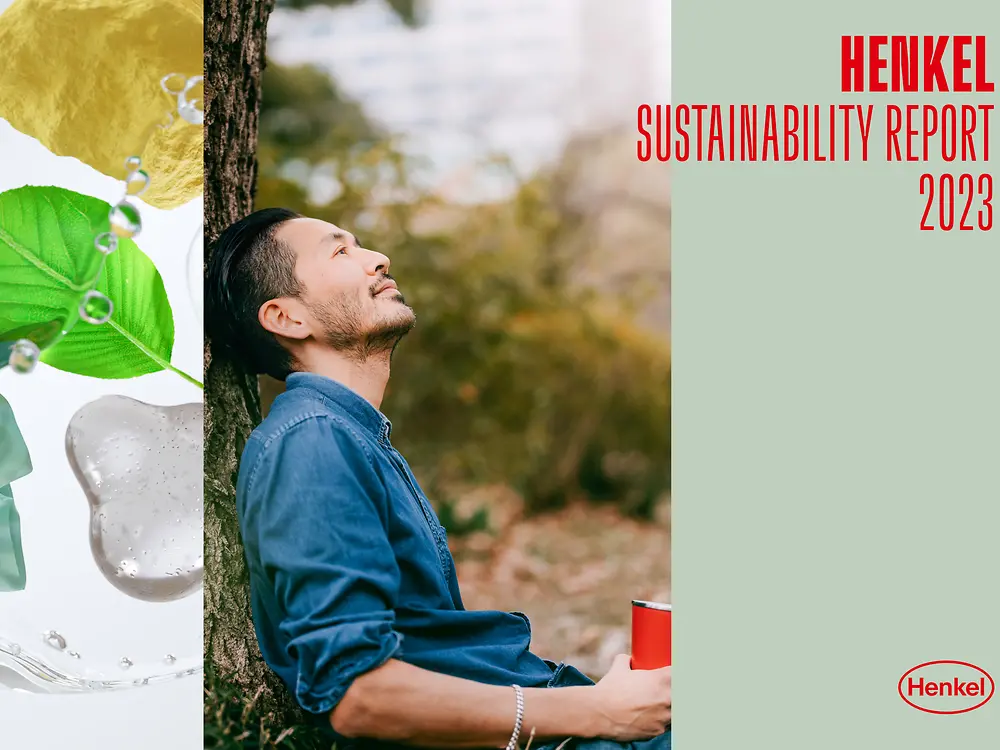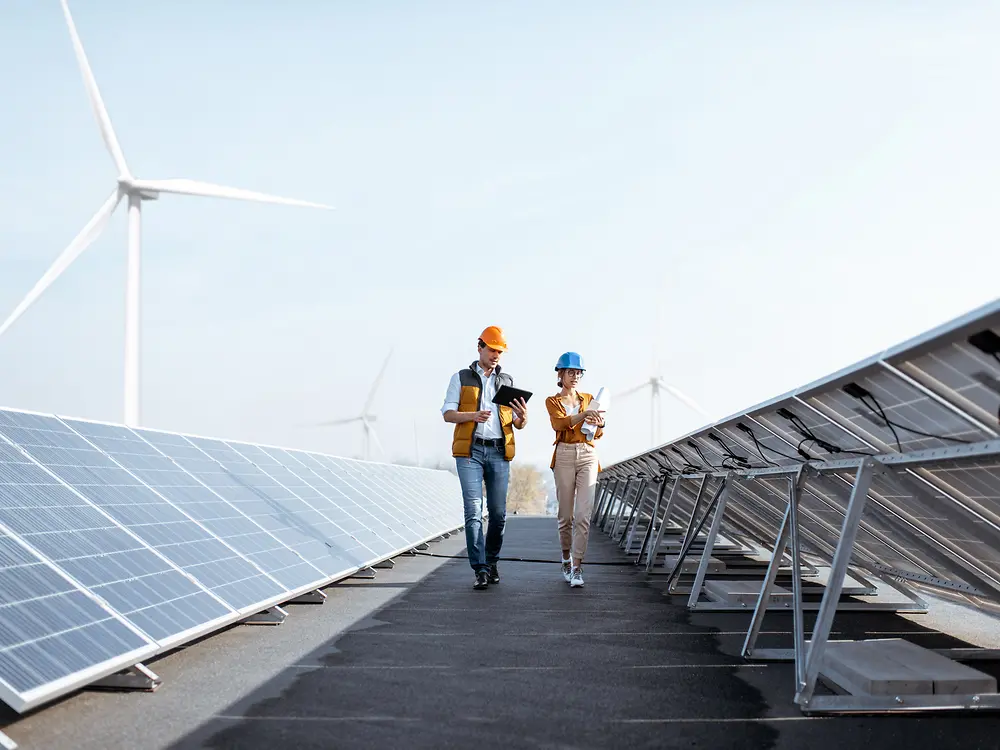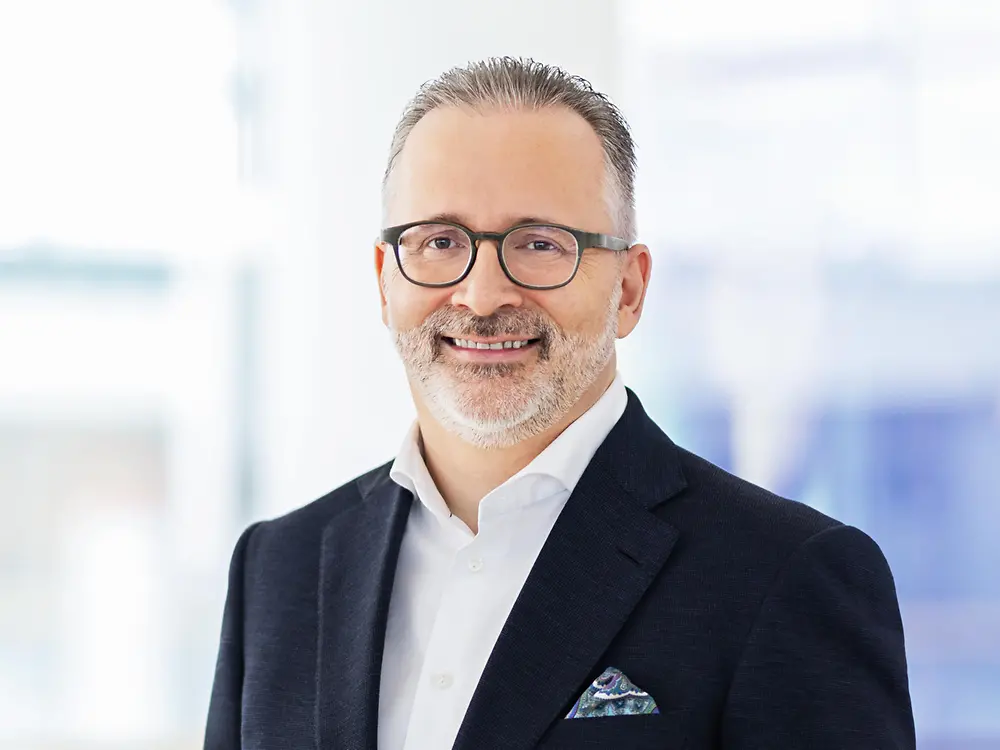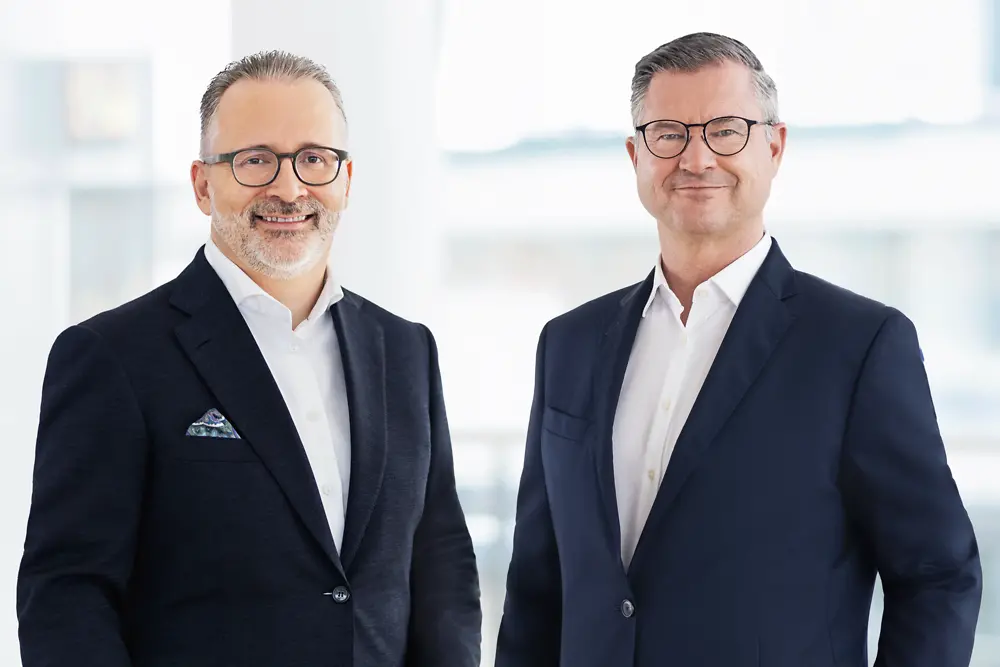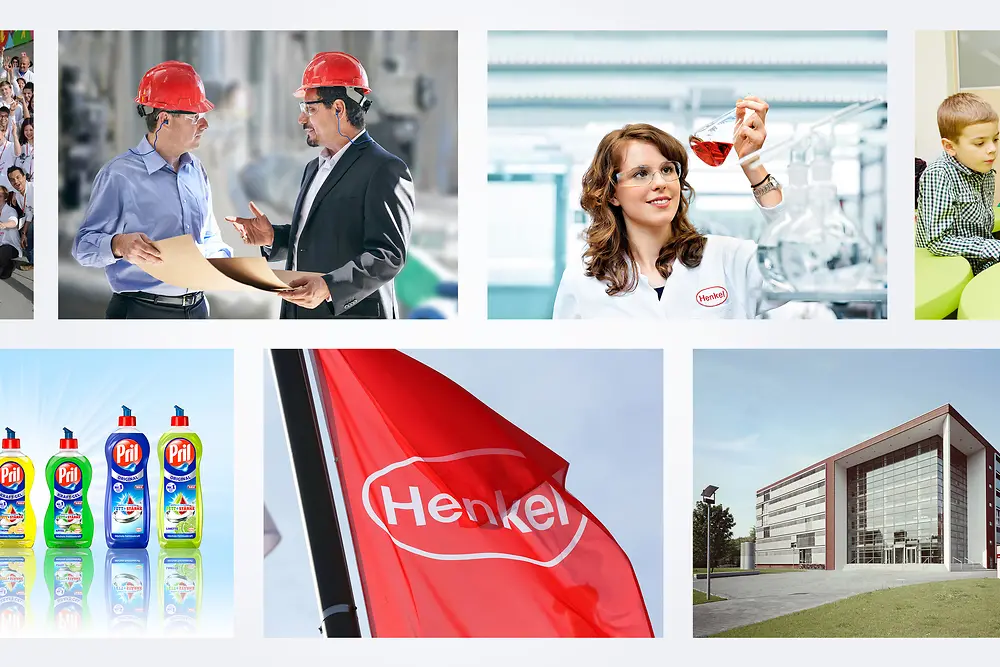Descubra as marcas das nossas dois unidades de negócios Henkel Adhesive Technologies e Henkel Consumer Brands.
4 de mar. de 2024 Düsseldorf / Germany
Strong progress on Henkel’s sustainability goals
- Climate action:
- reduction of CO2 emissions in production by 61 percent
- share of purchased electricity from renewable sources increased to 89 percent
- Circular economy: share of recycled plastic increased to 19 percent worldwide
- Natural Resources: 10th anniversary of collaboration with Solidaridad for sustainable palm (kernel) oil
- Gender parity ambition: gender-neutral parental leave guideline introduced
- Sustainable solutions: product portfolio further developed
- Employee engagement: “Sustainability at Heart” program extended
Henkel published its sustainability report for the fiscal year 2023 today, reporting on progress in the implementation of its global sustainability strategy, particularly in the use of renewable energies and the promotion of the circular economy. Additionally, the company has continued to work systematically on a more sustainable product portfolio and further expanded its employee engagement program.
“Sustainability is a central pillar of our Purposeful Growth Agenda,” said Carsten Knobel, CEO of Henkel. “Especially in challenging times like these, sustainable action is more important than ever. We are therefore working continuously on the implementation of our sustainability goals, and I am proud that we made very good progress again in the course of 2023. Our excellent results in leading external ESG ratings, for example the repeated EcoVadis Platinum achievement, show that we are on the right track and that our progress is recognized.”
“Last year, we focused on advancing our environment and social impact commitments,” added Sylvie Nicol, member of the Henkel Management Board, responsible for Human Resources, Infrastructure and Sustainability. “I want to highlight the significant progress on the sustainable sourcing of key commodities, for example palm and palm kernel oil certification. We have also made great efforts in contributing to a circular economy in both our business units. Moreover, we have continued to promote social equity, and I would like to emphasize the introduction of gender-neutral parental leave for all employees worldwide.”
Significantly improved sustainability performance
The “2030+ Sustainability Ambition Framework” defines clear ambitions and targets for Henkel’s global sustainability pathway on environment, social and governance issues. The company made significant improvements in the area of climate last year and reduced its overall CO2 emissions in production by 61 percent per metric ton of product (compared to the base year 2010), while it increased the proportion of electricity purchased from renewable sources to 89 percent. In total, 14 further sites have been converted to carbon-neutral production in 2023. Building on its progress in reducing CO2 emissions from raw materials and packaging by 17 percent (per ton of product, compared to the base year 2017), Henkel has also developed its net-zero pathway across all emission categories.
An important goal of Henkel is to promote a circular economy. Overall, Henkel has increased the share of recycled plastic in its consumer goods packaging to 19 percent worldwide. A prominent example is doubling the recycled content level to 50 percent for the entire universal liquid detergents portfolio in Europe, such as Persil.
Henkel has also continued its efforts to protect natural resources. This includes the responsible use of raw materials such as palm oil and palm kernel oil. At the end of 2023, the company was able to cover 96 percent of its global demand with sustainably certified palm (kernel) oil and reached a traceability rate up to the mill of 89 percent. With a particular focus on supporting smallholder farmers in the palm oil production, Henkel has celebrated 10 years of cooperation with the development organization Solidaridad. Over 39,000 smallholder farmers have already benefited from the joint initiatives. The partnership will be further expanded through specific projects in the coming years, including in Colombia and Indonesia.
In the area of diversity, equity and inclusion, Henkel has the ambition to achieve gender parity across all management levels by 2025, among others. Last year, the proportion of women in management positions increased to 39.5 percent. As part of its commitment to greater equity and family friendliness, Henkel has introduced a gender-neutral parental leave program. The new policy guarantees 100 percent paid parental leave of eight weeks for all employees worldwide, based solely on the role of the caregiver.
More sustainable product portfolio further developed
In the past year, Henkel has continued to work on transforming its product portfolio sustainably. One example of this is a project from the Adhesive Technologies business unit. The unit has further developed its internal assessment methodology to create greater transparency regarding the sustainability performance of its product portfolio. The results of the assessment are part of portfolio management and support the shift towards new solutions that enable emissions reduction and a circular economy.
In the Consumer Brands business unit, Henkel launched the “It starts with us” initiative in 2023. The aim is to support consumers in using products in a more resource-efficient way through simple behavioral tips in everyday life, for example by using the ECO program of their washing machine.
External recognition for performance and progress in sustainability
As in previous years, Henkel’s sustainability performance in 2023 has been recognized by several rating agencies, among others by EcoVadis, placing Henkel in the top 1 percent of the companies assessed, and Sustainalytics.
Global engagement program expanded
As part of its “Sustainability at Heart” program, which was rolled out globally in 2022, Henkel aims to further promote its employees' commitment to sustainability and has expanded its training offerings in 2023. More than 10,000 employees have already taken part in a basic training, which is available as e-learning in many languages and as a newly developed format for production workers. There are also in-depth training courses as well as a new Sustainability Incubator Lab – a format that gives employees the opportunity to work on their own sustainability ideas.


